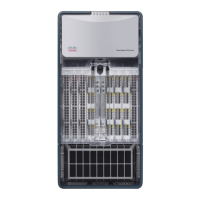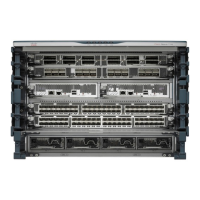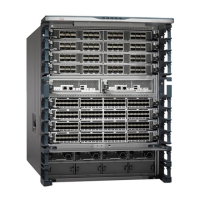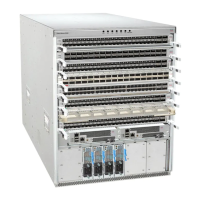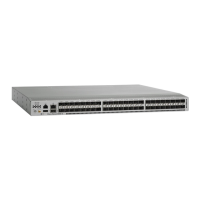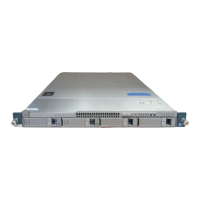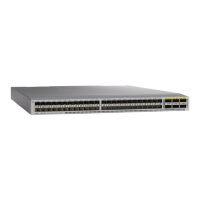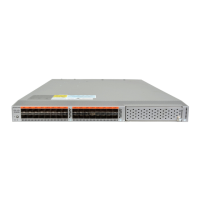range
To specify a range of ports as a group member in an IP port object group, use the range command. To remove
a port range group member from port object group, use the no form of this command.
[ sequence-number ] range starting-port-number ending-port-number
no {sequence-number| range starting-port-number ending-port-number}
Syntax Description
(Optional) Sequence number for this group member.
Sequence numbers maintain the order of group
members within an object group. Valid sequence
numbers are from 1 to 4294967295. If you do not
specify a sequence number, the device assigns a
number that is 10 greater than the largest sequence
number in the current object group.
sequence-number
Lowest port number that this group member matches.
Valid values are from 0 to 65535.
starting-port-number
Highest port number that this group member matches.
Valid values are from 0 to 65535.
ending-port-number
Command Default
None
Command Modes
IP port object group configuration
Command History
ModificationRelease
This command was introduced.4.0(1)
Usage Guidelines
IP port object groups are not directional. Whether a range command matches a source or destination port or
whether it applies to inbound or outbound traffic depends upon how you use the object group in an ACL.
This command does not require a license.
Examples
This example shows how to configure an IP port object group named port-group-05 with a group member
that matches traffic sent to or from port 137 through port 139:
switch# configure terminal
switch(config)# object-group ip port port-group-05
switch(config-port-ogroup)# range 137 139
Cisco Nexus 7000 Series Security Command Reference
613
R Commands
range
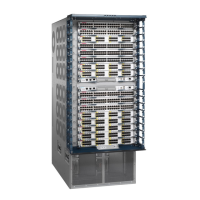
